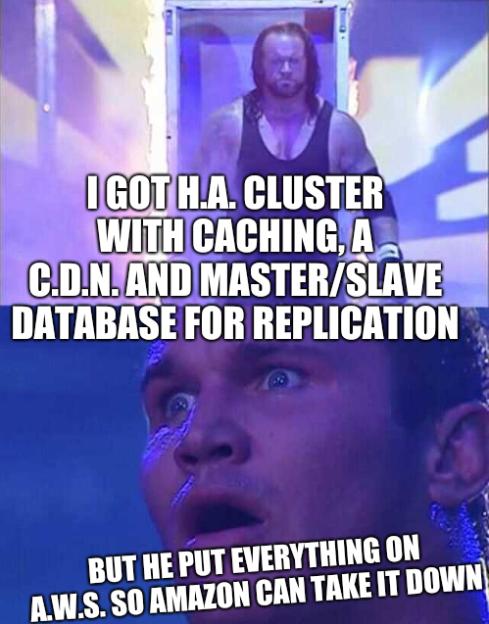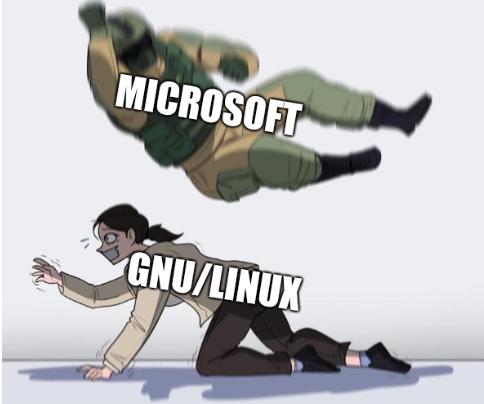#outsourcing
Why US military expenses are so high compared to global rivals
... and the relationship that has with offshoring, outsourcing, globalised processing, and other aspects of trade, shipping, production, and commerce.
You've likely seen examples of goods which are produced in one location, processed in another, and sold in a third, often spanning the globe. Fish shipped from the US to China and back, salt sourced in Pakistan, packed in South Africa, and sold in Canada, and other examples come to mind.
Much of what drives this is 1) the high cost of US and European wages and 2) the low cost of shipping.
This is related to what drives up the cost of US military operations, though that's largely driven by constraints on who can do what and where.
There's a great Reddit thread which breaks down drivers of US military expenses as compared with global rivals China and Russia (or if you prefer, the Taliban), by /u/GTFErinyes:
The metric that the US spends more on their defense budget than other most other nations combined is an extremely superficial look at military spending and mostly pointless as a comparison of power.
Of course the US spends a lot more than China or Russia: there is a vastly different cost of living in the US versus those nations.
To actually understand where/how the US spends on its military, take a look at the DOD Budget Request for 2018 and Table 5.1 from the Government Publishing Office for historical spending.
You'll see the actual budget breakdown:
- Military Wages - $141.7B
- Operations and Maintenance - $223.3B
- Procurement - $114.9B
- Research and Development - $82.7B
- Management - $2.1B
- Military Construction - $8.4B
- Family Housing - $1.4B
- Overseas Contingency Operations (war funds) - $64.6B
That's right - 25% of the base (day to day non-war funds) budget of the DOD is spent on JUST wages (22% if we include funds spent for war operations). That's just military personnel wages - contractor wages fall under the other categories they get contracted for (e.g. maintenance contractors fall under Ops/Maintenance)
Why does this matter? Compare this to China, where their soldiers are paid a tenth of what the US pays its soldiers. Or South Korea, a first world nation with conscription, which pay its soldiers $100 a month.
If the US paid its personnel what the Chinese do, we'd save nearly $130 billion overnight! ...
https://old.reddit.com/r/changemyview/comments/71bq8h/cmv_the_military_budget_of_the_us_is/dn9mqdq/
The comment continues, with an additional Part 2.
Input costs matter, and where there's price-sensitivity, often-paradoxical behaviours can emerge as a result.
Oh, and: Offshoring is a form of wage suppression.
Inspired by this Diaspora thread.
#offshoring #economics #wages #shipping #globalisation #MiltaryExpenses #military #outsourcing #prices
#intel keeps #outsourcing to #microsoft #ProprietarySoftware prison https://www.phoronix.com/scan.php?page=news_item&px=OSPray-Studio-0.8 management decision: http://techrights.org/wiki/Intel_leaks
For Resistance to #Censorship (e.g. Evidence of #Corruption and War Crimes) Get Off ’the Cloud’ • ꙅTHgiᴙHↄɘT ⚓ http://techrights.org/2021/08/23/publishing-evidence-of-corruption/ ䷉ #Techrights #clownComputing #outsourcing | ♾ Gemini address: gemini://gemini.techrights.org/2021/08/23/publishing-evidence-of-corruption/
Quit calling servers and #OUTSOURCING something like #clownComputing ... and also: this should be illegal (probably is!). #uk gov. should not send this data ABROAD. https://www.theregister.com/2021/08/09/driver_vehicle_standards_agency_aws_azure/ see http://techrights.org/2021/03/13/epoleaks-report-march-2021-part-4/
Now that #Microsoft uses #GitHub to encourage #GPL violations it’s time to reassess the alleged ‘safety’ of #outsourcing code to Microsoft http://techrights.org/2021/08/09/gnu-linux-as-hostage/ #deletegithub
Client today: "We are are interested in self-hosting on AWS instance." Me: WTH? That's self-contradictory. #aws is #OUTSOURCING which is the opposite of #selfhosting LOL!
Stupid cargo cult with buzzwords and "Managing Servers in the Cloud" LOL. #clowncomputing #outsourcing #LetsBeSlaves #devOps #devOOPS https://linuxtechlab.com/top-5-devops-books-for-beginners-to-read/
The sad demise of #OSI , which has become little but a front group of #proprietarysoftware companies in pursuit of #openwashing services (and #outsourcing to proprietary disservices looking to eradicate copyleft) ⚓ http://techrights.org/2021/07/29/osi-song/ ䷉ #Techrights | ♾ Gemini address: gemini://gemini.techrights.org/2021/07/29/osi-song/
#Rackspace laid off 10% of its staff; now it is #outsourcing .. do you want #aws RESELLERS? https://www.globenewswire.com/news-release/2021/07/29/2271539/0/en/Rackspace-Technology-Collaborates-with-iPromote-to-Reduce-Operational-Costs-by-30-with-Linux-on-AWS.html
● NEWS ● #TimesHigherEducation #Education ☞ #Outsourcing online learning is selling students short https://www.timeshighereducation.com/blog/outsourcing-online-learning-selling-students-short
#IBM is so proud to be #outsourcing almost everything to monopolistic #proprietarysoftware controlled by #Microsoft and the #NSA (GitHub) https://developer.ibm.com/blogs/ibm-codenet-dataset-empowers-ai-to-tackle-programming-challenges/
Teaching clown and training students for buzzwords, #proprietarySoftware GUIs. Sorry, but #outsourcing is not a skill. https://www.waketech.edu/post/wt-news-story/9364
If you're an IT manager who hasn't touched anything other than packages of Microsoft stuff in years, then one of the simplest ways to de-risk the process is to outsource it
"It's a symptom of a wider cultural issue within all NHS tech organisations."
It's difficult to reap the cost benefits of free and open source software within governments when your IT resources are only used to installing Microsoft patches or getting consultants in to do installations and support. It's not to say FOSS is completely free, as you'd still be paying your internal IT staff, as well as hopefully contributing financially to the FOSS projects you use, but there should be cost benefits nonetheless.
"They've hired directors of everything, and yet they still haven't actually turned out any particularly useful products. The NHS COVID app, something they brandish as a success of NHSX... well, that was delivered by NHS Digital."
Too often, government ends up losing its ability to deliver internally. I've seen (and still know of) internal government employees getting paid average wages and actually supporting a number of open source applications that manage wide area networks, collaboration, video conferencing, and more. These services will all convert into expensive annually increasing subscription services when these employees leave one day. It's a worldwide trend, unfortunately, and one which will drain taxpayers. The culture of doing more with less is unfortunately not alive and well.
See When free and open source actually means £6k-£8k per package: Atos's £136m contract with NHS England
#technology #opensource #government #outsourcing
'All software must be safely and securely deployed within guidelines provided to us,' says outsourcer
A #CCTV #Company Is Paying #Remote Workers in #India to Yell at Armed Robbers
In one of the sample videos #LiveEye sends potential customers, two black-clad robbers, one carrying an assault rifle, run into what appears to be a #7-Eleven store and force the clerk behind the counter. As the clerk starts to open the cash register, the Live Eye system dings and a voice informs the robbers that the police have been called. They run out of the store.
“That’s how someone is going to get killed,” the former field consultant said. “You don’t startle someone with an assault rifle. That violates 7-Eleven policy. There’s a reason why the silent alarm is silent” at banks and other businesses.
#business #supermarket #usa #outsourcing #security #crime #surveillance #economy #news #privacy #danger #video










